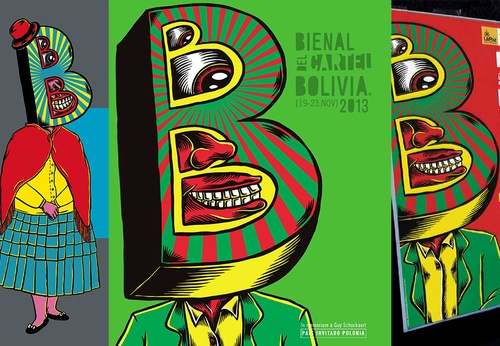
Artificial Intelligence vs. Art and Copyright: Misappropriation?
The Rise of AI-Generated Ghibli Styles Reopens the Debate on Copyright and the Trivialization of Culture
The popularization of the ChatGPT image generator, capable of recreating recognizable artistic styles such as Studio Ghibli, has sparked a new wave of debate in the legal and ethical spheres. Beyond the viral phenomenon, the implications of this technology touch on deeper issues regarding copyright, unfair competition, the trivialization of art, and cultural extractivism.
Some AI platforms are using copyrighted works to train AI models without compensating the creators, while other businesses are trying to establish compensation mechanisms. The debate revolves around whether this is a case of misappropriation or a new way to generate shared wealth. Emerging regulations in the EU and the US could shape the future of this sector. Experts from the Universitat Oberta de Catalunya (UOC) analyze, from a legal perspective, the violations arising from the widespread use of recognizable visual styles, and, from an artistic perspective, warn of cultural trivialization and the loss of artistic identity in the face of aesthetic standardization driven by AI.
Copying without copying: the legal challenge of protecting a style
The visual style of a work is not directly protected by copyright, either in Spain or in the European Union. However, when a set of aesthetic features is so identifiable that it acts as a "visual signature," it may enjoy indirect protection. "Even if it is not registered as a trademark, the law protects that identity to prevent other companies from taking advantage of its reputation and confusing the public," explains Begoña González Otero, a professor at the Faculty of Law and Political Science at the UOC.
From a legal perspective, the widespread use of Studio Ghibli's style by AI platforms opens the door to potential claims for unfair competition and appropriation of artistic identity. "Massively copying a style so closely associated with its creator or studio may be illegal, even if a specific work is not copied," González Otero points out. According to Article 6 of the Unfair Competition Law (LCD), causing confusion or exploiting another's reputation constitutes an unlawful practice. There may also be a risk of dilution of an unregistered trademark if the style is proven to be distinctive and well-known. The situation changes depending on who generates the images. "When there are platforms or companies that use recognizable styles to train or produce content that competes in the market, there is a clear risk of unfair exploitation," the expert states. However, if these are individual users creating images for private use, "any direct action against them would be disproportionate," according to Directive 2004/48/EC.
Furthermore, the passage of the Digital Services Act (DSA) introduces new obligations for certain AI platforms. Specifically, these rules apply when they act as intermediaries, that is, if they allow users to generate, share, or distribute online content, such as images, text, or videos. In these cases, the DSA—which expands the framework of the E-Commerce Directive—requires platforms to act diligently against illegal content, to be more transparent, and to better protect users' rights. If the platform exceeds 45 million users in the European Union, it is considered a very large online platform (VLOP) and must meet additional requirements, such as conducting systemic risk assessments (e.g., information manipulation or mass dissemination of disinformation).
However, if a platform does not simply host third-party content but uses that content to retrain its own models, it ceases to be a mere intermediary. In that case, it assumes direct liability, which may have stricter legal consequences.
Despite this regulatory framework, practical application remains limited. González Otero warns that, "although the legal foundations exist, enforcement in Europe is weak, and the market favors opportunistic behavior." Cases such as GEMA v. OpenAI illustrate the difficulty of defending copyright against AI models.
Source

- January 27, 2026
Aztecs in the Empire City: “The People Without History” in The Met


- January 27, 2026
The Evolution of Art: From Classical to Digital

- January 27, 2026
What are Visual Arts and Why Do They Matter Today?

- January 27, 2026
Selected Illustration Gallery of Venezuelan Artists

- January 27, 2026
Selected Caricature Gallery of Cuban Artists

- January 26, 2026
Bolivia Poster Biennial (BICeBé 2013)

- January 26, 2026
Selected Gallery of Paintings by Peruvian Artists

- January 26, 2026
Selected Gallery of Watercolor Paintings by Peruvian Artists

- January 27, 2026
The Evolution of Art: From Classical to…

- January 27, 2026
What are Visual Arts and Why Do They Ma…

- January 26, 2026
First artistic manifestations

- January 26, 2026
Art in the Street: Expression, Identity…

- January 25, 2026
text-to-image generator with ai

- January 25, 2026
The 'uncomfortable' muralist who portra…

- January 24, 2026
Artificial Intelligence as a Tool and C…

- January 24, 2026
Artificial Intelligence in Art

- January 21, 2026
Art of Artificial Intelligence and its …

- January 21, 2026
5 most striking features of modernism

- January 19, 2026
History of painting

- January 19, 2026
Conditions and characteristics of sacre…

- January 08, 2026
The art of caricature in Latin America

- January 07, 2026
Languages, Aesthetics, and Meaning of C…

- January 07, 2026
Street Art as a Form of Social and Cult…

- January 06, 2026
Symbolism and Spirituality in Latin Ame…

- January 06, 2026
Sacred Art in Latin America: Meeting be…

- January 05, 2026
The Importance of Art in Society

- January 04, 2026
Graphic Art: Much More Than an Image, a…

- January 04, 2026
The Future of NFTs and AI-Generated Art

- August 29, 2023
The history of Bolivian art

- February 19, 2024
Analysis and meaning of Van Gogh's Star…

- January 28, 2024
Culture and Art in Argentina

- September 25, 2023
What is the importance of art in human …

- September 23, 2023
What is paint?

- August 23, 2023
The 11 types of art and their meanings

- August 10, 2023
14 questions and answers about the art …

- September 23, 2023
Painting characteristics

- August 30, 2023
First artistic manifestations

- January 12, 2024
10 most beautiful statues and sculpture…

- September 23, 2023
History of painting

- March 26, 2024
The importance of technology in art1

- July 13, 2024
The impact of artificial intelligence o…

- March 26, 2024
Cultural identity and its impact on art…

- April 07, 2024
Graffiti in Latin American culture

- April 02, 2024
History visual arts in Brazil

- April 06, 2024
History of visual arts in Ecuador

- August 16, 2023
The 15 greatest painters in art history

- October 18, 2023
History of sculpture

- March 05, 2024
The art of sculpture in Latin America

- February 19, 2024
Analysis and meaning of Van Gogh's Star…

- August 13, 2023
9 Latino painters and their great contr…

- August 23, 2023
The 11 types of art and their meanings

- August 10, 2023
14 questions and answers about the art …

- August 27, 2023
15 main works of Van Gogh

- August 29, 2023
The history of Bolivian art

- January 28, 2024
Culture and Art in Argentina

- November 06, 2023
5 Latin American artists and their works

- September 23, 2023
Painting characteristics

- September 23, 2023
What is paint?

- September 25, 2023
What is the importance of art in human …

- March 26, 2024
Cultural identity and its impact on art…

- August 30, 2023
First artistic manifestations

- December 18, 2023
10 iconic works by Oscar Niemeyer, geni…

- January 20, 2024
What is the relationship between art an…

- January 12, 2024
10 most beautiful statues and sculpture…

- August 24, 2023
The most famous image of Ernesto "Che" …

- October 30, 2023
Characteristics of Contemporary Art

- May 26, 2024
Técnicas de artes visuais

- August 22, 2023


